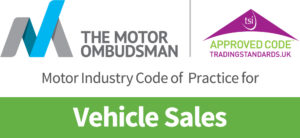
Over 700 e-mails and calls were received in the first four weeks by The Motor Ombudsman following the Code’s arrival, which swiftly rose to in excess of 1,000 during November. Since the beginning of 2017, The Motor Ombudsman has witnessed a monthly average of around 1,100 contacts, and about 10,000 contacts up to the end of August 2017. Encouragingly, only 540 of this year’s total contacts have resulted in cases, an escalation rate of just over 5%, with 10% of these cases being submitted to The Motor Ombudsman’s in-house ombudsman for a final decision. With the guidance of The Motor Ombudsman, this low contact to case ratio highlights the great lengths that businesses and consumers are going to in order to conclude any queries quickly to help maintain a positive ongoing relationship.
In the first two quarters of the year, the most frequent breaches of the Code were in relation to the quality of the vehicle which was not of the correct standard at the point of delivery, the lack of sufficient information for a customer to make a decision on the most suitable finance product, and advertising content being inaccurate.
Bill Fennell, Chief Ombudsman and Managing Director of The Motor Ombudsman, said: “Contacts from consumers regarding the Vehicle Sales Code have continued to increase significantly since it was introduced in 2016, and they now form a significant part of the workload of our adjudicators. It’s important to point out however, that this upward trend in the volume of individuals getting in touch with us does not signal a rise in the number of customer complaints or that there has been a decline in industry standards. Instead, it’s the result of heightened awareness amongst motorists of the Code of Practice and the benefits of engaging in open dialogue and Alternative Dispute Resolution via The Motor Ombudsman, without the need to pursue costly legal action to solve an issue with a garage.”
Visit The Motor Ombudsman’s online Garage Finder (TheMotorOmbudsman.org/garage-finder) to view all franchised dealerships and independent garages that are accredited to the Vehicle Sales Code of Practice.
Notes to editors
About The Motor Ombudsman
The Motor Ombudsman is the automotive dispute resolution body. Fully-impartial, it is the first ombudsman to be focused solely on the automotive sector, and self-regulates the UK’s motor industry through its comprehensive Chartered Trading Standards Institute (CTSI)-approved Codes of Practice. Thousands of businesses, including vehicle manufacturers, warranty product providers, franchised dealers and independent garages, are accredited to one or more of the Codes, which drive even higher standards of work and service, and give consumers added protection, peace of mind and trust during the vehicle purchase and ownership experience.
For more information on The Motor Ombudsman, visit www.themotorombudsman.org
About the Vehicle Sales Code

The Vehicle Sales Code covers nine different areas. These include the transparent wording of adverts and pricing, clear and transparent invoicing, and the sale of a used car which is supported by a vehicle provenance check to ensure that it has not been stolen, written-off and is free of any outstanding finance payments. It also highlights that retailers should provide test drives, avoid high-pressure selling techniques, supply accurate advice on warranty and finance products, and deliver a vehicle with a full handover, complete with all historic documentation, the entire service history and a valid MOT certificate.
NB: Auction sales are not covered within the scope of this Code.







